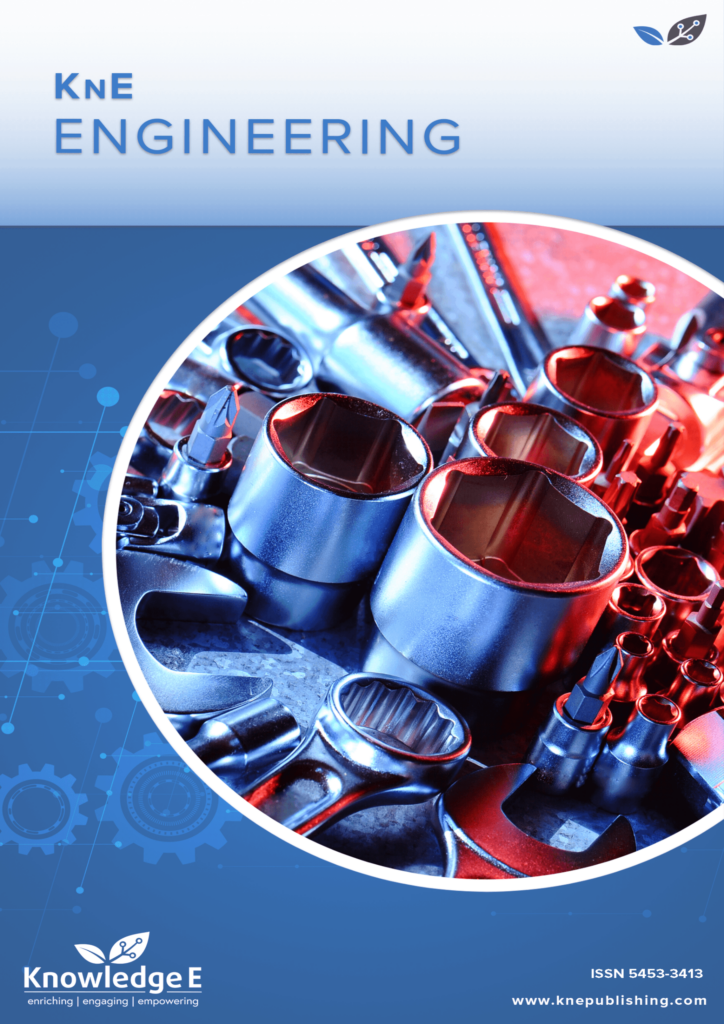
KnE Engineering
ISSN: 2518-6841
The latest conference proceedings on all fields of engineering.
Highly Stable, Water-Soluble CdSe/ZnS/CdS/ZnS Quantum Dots with Additional SiO2 shell
Published date:Oct 08 2018
Journal Title: KnE Engineering
Issue title: Breakthrough directions of scientific research at MEPhI: Development prospects within the Strategic Academic Units
Pages:449–456
Authors:
Abstract:
Quantum dots (QDs) are fluorescent nanocrystals extensively used today in research and applications. They attract much interest due to the high photostability and fluorescence quantum yields close to 100%. The best QDs are made by synthesis in organic media, and they have to be transferred into aqueous solutions if biomedical applications are concerned. An advanced method for rendering QDs water-soluble is to coat them with hydrophilic SiO2 -layer. However, growing a silica shell with a predetermined thickness is a problem, because uncertain values of the molar extinction coefficients (ε) of core/shell QDs made it impossible to calculate precise yields of the chemical reactions involved. Here we suggest an approach to solving this problem by constructing the structural models of per se and silica-coated QDs followed by measuring ε in a course of the QD synthesis, thus carrying out precise quantitative reactions. Proceeding in such a way, we prepared the CdSe/ZnS/CdS/ZnS QDs with the structure predicted by the model and coated by silica shell. Prepared QDs are characterized by a narrow size distribution and the same fluorescence parameters as the original QDs in the organic medium. Developed approach permitted efficient QDs water-solubilisation and preparation of stable nanoparticles for plethora of biomedical applications.
Keywords: Quantum dots, QD, silica shell, core-shell
References:
[1] P. Samokhvalov, M. Artemyev, and I. Nabiev, ”Basic principles and current trends in colloidal synthesis of highly luminescent semiconductor nanocrystals,” Chem. Eur. J., vol. 19, no. 5, pp. 1534-1546, 2013.
[2] X. Dai, Z. Zhang, Y. Jin, Y. Niu, H. Cao, X. Liang, L. Chen, J. Wang, and X. Peng, ”Solution-processed, high-performance light-emitting diodes based on quantum dots,” Nature, vol. 515, no. 7525, pp. 96-99, 2014
[3] A. Sukhanova, K. Even-Desrumeaux, A. Kisserli, T. Tabary, B. Reveil, J.-M. Millot, P. Chames, D. Baty, M. Artemyev, V. Oleinikov, M. Pluot, J.H.M. Cohen, and I. Nabiev, ”Oriented conjugates of single-domain antibodies and quantum dots: toward a new generation of ultrasmall diagnostic nanoprobes,” Nanomedicine, vol. 8, no. 4, pp. 516-525, 2012.
[4] L. Qian, D. Bera, T.-K. Tseng, and P.H. Holloway, ”High efficiency photoluminescence from silica-coated CdSe quantum dots,” Appl. Phys. Lett., vol. 94, no. 7, pp. 073112, 2009.
[5] I.I. Slowing, B.G. Trewyn, S. Giri, and V.S.-Y. Lin, ”Mesoporous silica nanoparticles for drug delivery and biosensing applications,” Adv. Funct. Mat., vol. 17, no. 8, pp. 1125-1236, 2007.
[6] Y. Wang, Q. Zhao, N. Han, L. Bai, J. Li, J. Liu, E. Che, L. Hu, Q. Zhang, T. Jiang, and S. Wang, ”Mesoporous silica nanoparticles in drug delivery and biomedical applications,” Nanomedicine, vol. 11, no. 2, pp. 313-327, 2015.
[7] W.W. Yu, L. Qu, W. Guo, and X. Peng, ”Experimental determination of the extinction coefficient of CdTe, CdSe, and CdS nanocrystals,” Chem. Mat., vol. 15, no. 14, pp. 2854-2860, 2003.
[8] J. Jasieniak, L. Smith, J. van Embden, P. Mulvaney, and M. Califano, ”Re-examination of the size-dependent absorption properties of CdSe quantum dots,” J. Phys. Chem. C, vol. 113, no. 45, pp. 19468-19474, 2009.
[9] P. Samokhvalov, P. Linkov, J. Michel, M. Molinari, and I. Nabiev, ”Photoluminescence quantum yield of CdSe-ZnS/CdS/ZnS core-multishell quantum dots approaches 100% due to enhancement of charge carrier confinement,” Colloidal Nanoparticles for Biomedical Applications IX, W.J. Parak, M. Osinski, K.I. Yamamoto eds., vol. 8955, 89550S, 2014.
[10] J.J. Li, Y.A. Wang, W. Guo, J.C. Keay, T.D. Mishima, M.B. Johnson, and X. Peng, ”Largescale synthesis of nearly monodisperse CdSe/CdS core/shell nanocrystals using airstable reagents via successive ion layer adsorption and reaction,” J. Am. Chem. Soc., vol. 125, no. 41, pp. 12567-12575, 2003.